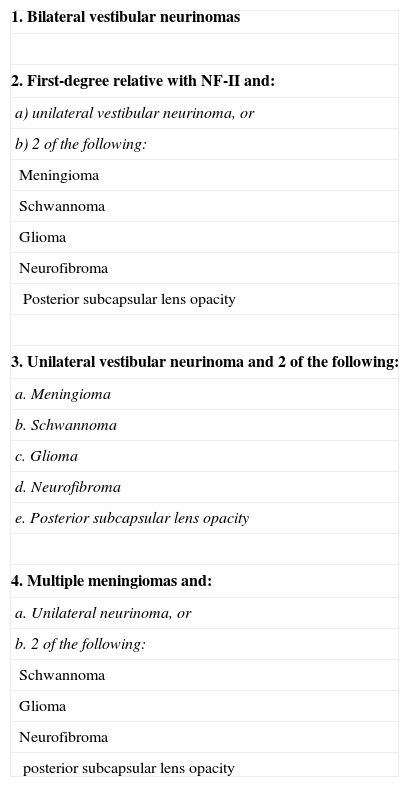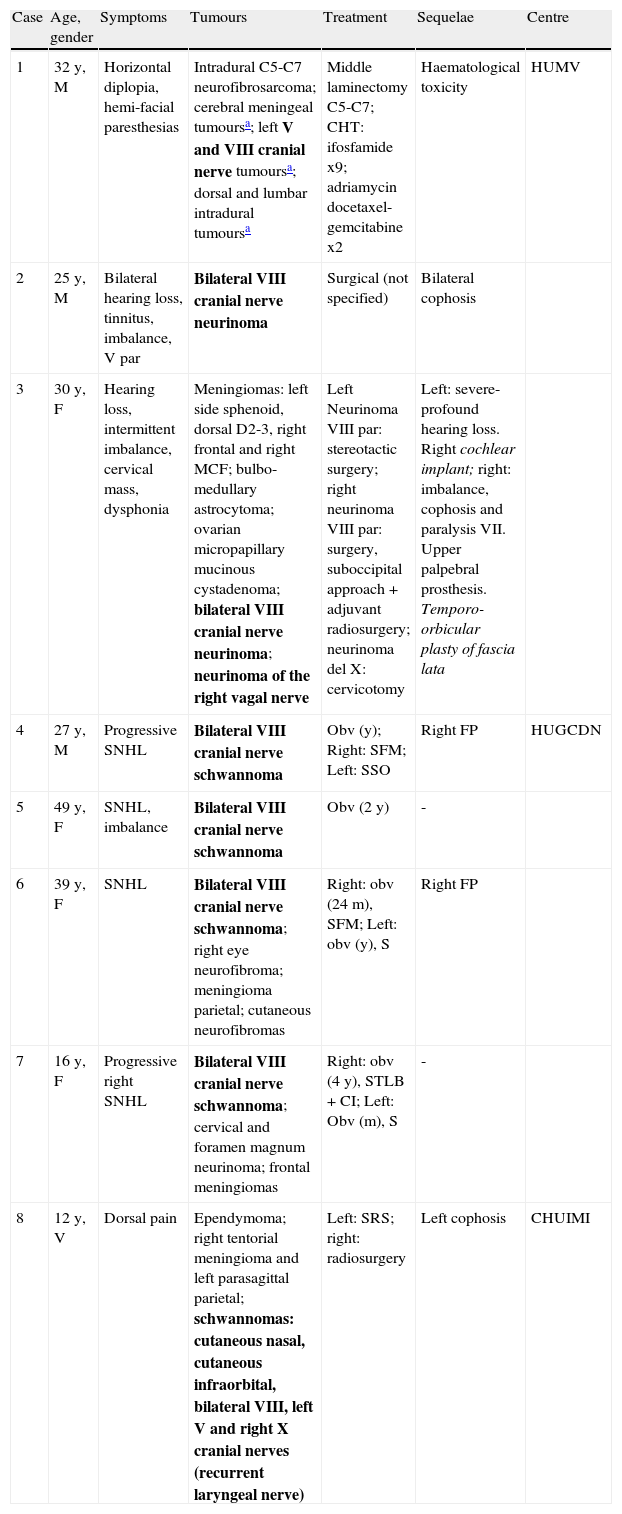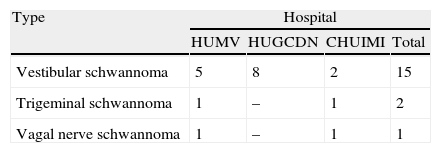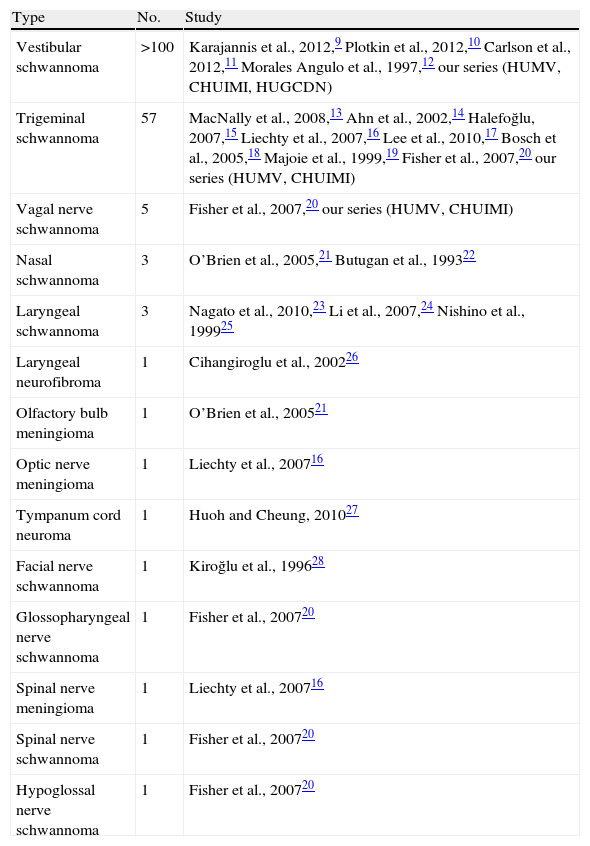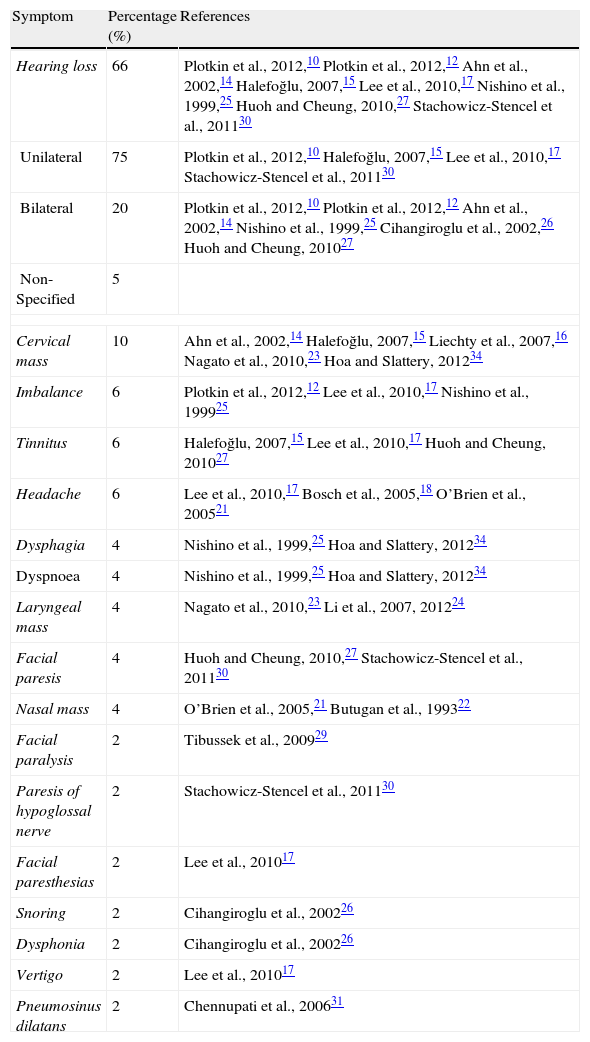Neurofibromatosis type 2 (NF2) is an infrequent autosomal dominant disease characterised by the appearance of VIII nerve schwannomas, meningiomas and ocular abnormalities. Incidence of 1:25 000 and prevalence above 1:80 000 are estimated in general. The objectives of our study were to determine current prevalence of NF2 in the Community of Cantabria and the province of Las Palmas, and its head and neck manifestations.
Material and methodsThis was a population-based, retrospective study in 3 tertiary hospitals.
ResultsThe study population showed prevalence of 1:600 000 in the Community of Cantabria and 1:280 000 in the province of Las Palmas. The most frequently diagnosed tumour was acoustic neuroma (n=15), followed by trigeminal neurinoma (n=2) and vagus (n=1).
ConclusionsCases of NF2 are infrequent in Cantabria and Las Palmas, lower than that reported in the literature. The most frequently described head and neck tumour in the literature is acoustic neuroma, followed by schwannoma of cranial nerves V and X. Other tumours such as nasal, laryngeal, chorda tympani or cranial nerve VII schwannomas are also described. The most frequent ENT manifestation is hearing loss, especially unilateral, followed by cervical mass, tinnitus and headache. Early diagnosis and multidisciplinary management in specialised centres could improve life expectancy and quality of life for these patients.
La neurofibromatosis tipo ii (NFII) es una enfermedad infrecuente de herencia autosómica dominante que se caracteriza por la aparición de schwanomas del viii par, alteraciones oculares y meningiomas. Se estima una incidencia de NFII de 1:25.000 y una prevalencia mayor de 1:80.000. Los objetivos de nuestro estudio fueron determinar la prevalencia puntual de NFII en la Comunidad de Cantabria y la provincia de Las Palmas, así como caracterizar sus manifestaciones de cabeza y cuello.
Material y métodosSe trata de un estudio poblacional, retrospectivo, en 3 hospitales de tercer nivel.
ResultadosEl estudio poblacional mostró una prevalencia puntual de 1:600.000 en la Comunidad de Cantabria y 1:280.000 en la provincia de Las Palmas. El tumour más frecuentemente diagnosticado fue el neurinoma del acústico (n=15), seguido del neurinoma del trigémino (n=2) y del vago (n=1).
ConclusionesLa NFII en Cantabria y Las Palmas es infrecuente, menor a la descrita en la literatura. El tumour de cabeza y cuello más frecuentemente descrito en la literatura es el neurinoma del acústico seguido del schwanoma del v y del x par. Están descritos aisladamente otros tumores, como el schwanoma nasal, laríngeo, de chorda timpanae o del vii par. La manifestación ORL más frecuente es la hipoacusia, sobre todo unilateral, seguida de masa cervical, acúfenos y cefalea. Un diagnóstico precoz y el manejo multidisciplinar en centros especializados podrían mejorar la esperanza y calidad de vida en estos pacientes.
Artículo
Comprando el artículo el PDF del mismo podrá ser descargado
Precio 19,34 €
Comprar ahora






